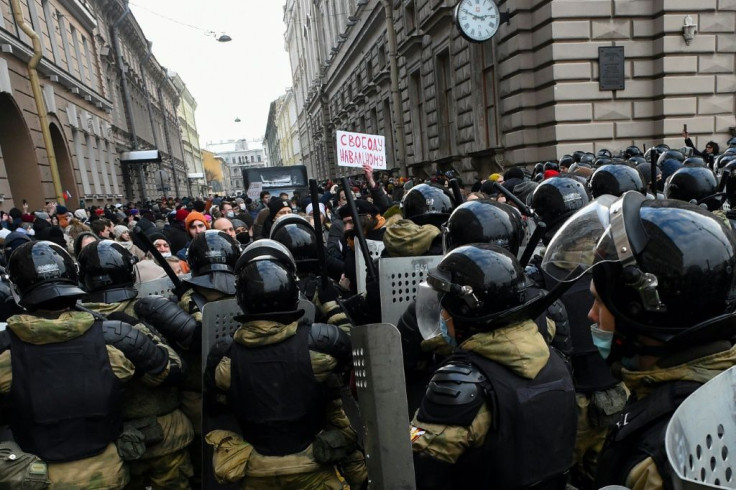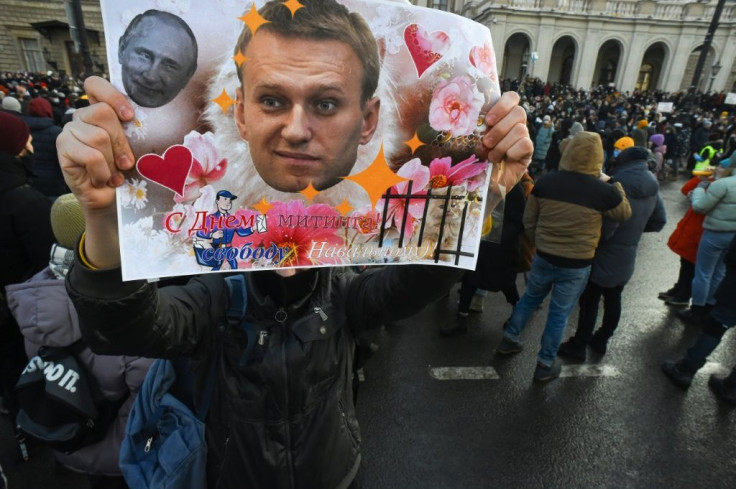Moscow Court To Decide On Lengthy Sentence For Navalny
A Moscow court was on Tuesday due to begin hearing whether jailed Russian opposition leader Alexei Navalny, whose arrest has triggered mass protests, should face up to 2.5 years in prison.
Navalny, 44, was detained on January 17 when he returned to Moscow from Berlin, where he had spent months recovering from a poisoning attack in August he blamed on President Vladimir Putin.
The anti-corruption crusader is charged with violating a 2014 suspended sentence for embezzlement by skipping out on check-ins with Russia's prison service while in Germany.
The case saw Navalny spend one year under house arrest as part of a 3.5-year suspended sentence and his brother Oleg serve the entire time in jail.

Navalny and his allies believe the embezzlement case was retribution by the authorities for his political activities. They say the Kremlin is now repurposing it to muzzle him.
The arch Kremlin critic's lawyers told AFP he faces up to two years and six months behind bars as he had already served one year under house arrest.
Navalny has been a thorn in Putin's side for years and in particular since he was arrested last month.
Two days after Navalny was placed in pre-trial custody, his team released an investigation into an opulent seaside property Navalny claims was given to Putin through a billion-dollar scheme financed by the president's close associates who head state companies.
Critics say the probe, which was published alongside a YouTube video report that has garnered more than 100 million views, is the latest example of widespread corruption by top officials during Putin's more than two decades in power.

Along with Navalny's arrest, the corruption claims have spurred mass nationwide protests over the past two weekends in the biggest political crisis for the Kremlin in nearly a decade.
Despite government warnings and a crackdown on demonstrators last week, tens of thousands rallied across Russia on Sunday.
Police detained more than 5,400 people in a single-day record and used increasingly harsh tactics to subdue dissent, deploying batons and tasers.
Navalny's team has called for a protest Tuesday outside the Moscow court hearing his case, which has said that the opposition leader will be present.
His arrest and the mass detentions during street protests have triggered a wave of condemnation from the West.
The United States and the European Union have called for Navalny's immediate release and have denounced police violence on demonstrators.
"This is absolutely a domestic affair," Kremlin spokesman Dmitry Peskov said last month. "We will not allow anyone to interfere in it."
© Copyright AFP {{Year}}. All rights reserved.





















